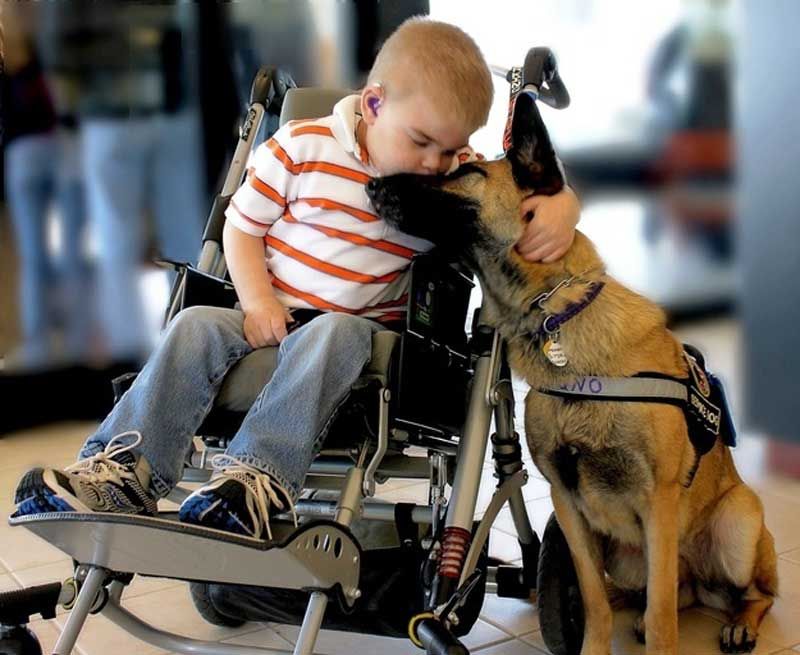Though a relatively new area, therapy dogs for autistic people are being trained and used in many areas of the country.
To an autistic child, the world is often filled with loud distractions, bright lights, disorienting stimuli, and uncontrollable nervous impulses. These days, more and more autistic children are facing this challenging world with a loving, specially trained companion by their side: their therapy dog.
Though a relatively new area, therapy dogs for autistic people are being trained and found in many areas of the country, and the list of organizations that promote their use is growing.
How therapy dogs help autistic children
If you’ve ever watched a service dog help a person with a physical disability, it shouldn’t come as a surprise that canine companions can also be trained to help people with autism. Here are some of the ways these dogs make life better and more manageable for children with autism:
Calming the child. Autistic kidren are subject to wild and random-seeming emotional outbursts. Therapy dogs that have bonded with autistic children have been shown to help keep them calmer. The dog must be trained to remain calm and supportive during the child’s tantrum-and the kid must understand that the canine is there for him to pet and hug. This may not be viable for all autistic children-dog partnerships, but it has been demonstrated to work in some cases.

Reducing repetitive motion. Many autistic children exhibit repetitive movements and behaviors, such as rocking back and forth. In some cases these mannerisms can become very forceful and last for prolonged periods of time. Martin, “What I want is a dog who is very forgiving, people-oriented, and if a person is behaving strangely, the dog will look at the therapist and say, ‘That kid will be behaving strangely, but it’s all right with me. Therapy dogs have even been trained to recognize the onset of these episodes and interrupt the child.
Keeping the child from wandering off. Families with autistic children know that they must be ever vigilant end up being cause of their child’s tendency to wander off. Therapy dogs are trained to keep these children from straying by circling them and barking to alert family members.
Being a soul mate. Dogs have earned their “best friend” status because of their uncanny ability to understand their master’s emotional wants and needs. It appears that therapy dogs can also form this type of deep emotional bond with autistic children-a bond that transcends the ability of the kid to express himself verbally.
Which dogs are best for autistic children?
The art of training these therapy dogs is still relatively new. As a result, organizations and trainers around the country have developed differing training programs and philosophies.
The North Star Foundation in Connecticut, for example, prefers to train puppies as therapy dogs for autistic children. They believe that puppies should be used “in order to facilitate the strongest bond possible, and to ensure the dog’s training matches the child’s needs.”
Do some breeds make better therapy dogs for people with autism? Not according to Dr. Francois Martin, who has studied using animals to help children with neurological disorders express their emotions. According to Dr. With a loyal-and well-trained-therapy dog to hug, some autistic children spend less time exhibiting repetitive movements.'”
Where to get help
There are a number of organizations that train and provide therapy dogs for autistic children. These include Oregon-based Autism Service Dogs of America (ASDA), www.autismservicedogsofamerica.com. Located in Connecticut, The North Star Foundation (www.northstardogs.com) trains and places therapy puppies with autistic children and their families.

